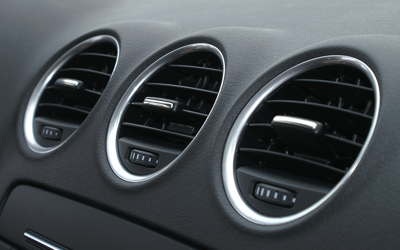Supplier Hexpol TPE is also bringing its family of bio-based TPEs manufactured from renewable resources to the exhibition in Germany.
September 13, 2017

Among the technologies to be presented by Hexpol TPE at the upcoming Fakuma show in Germany will be Dryflex Thermoplastic Elastomers for automotive interior applications such as floor mats, cup holder liners, fascia mats and HVAC components. These compounds are designed to minimise emissions from volatile organic compounds (VOCs) and help manufacturers and OEMs address demands for vehicle interior air quality (VIAQ) issues. The Dryflex TPEs display low fogging and low odour performance, including grades with results ≤ 3 in odour standards such as VDA 270. According to gravimetric fogging standard DIN 75201 they have condensate < 2 mg and in thermal desorption analysis VDA 278 they achieve VOC results < 500 µg/g and Fog < 1500 µg/g.
|
Low VOC grades for auto interiors (above) and solvent-bondable TPEs for medical applications (below) are among the products to be shown by Hexpol TPE at Fakuma. |
|
A new development in the Mediprene family of TPEs for medical applications is the introduction of several grades for solvent bonding. “Many customers are today joining tubes with injection moulded components, such as connectors, by solvent bonding. Traditional styrenic block copolymer-based formulations do not bond well with solvent – cyanoacrylate glue with or without primer is an alternative to achieve high bond strength in these situations,” says Niklas Ottosson, technical manager – medical, Hexpol TPE. “However, in addition we have developed a range of Mediprene TPE compounds which achieve high bond strength when applying solvents such as cyclohexanone.”
Representative Mediprene grades have passed cytotoxicity tests according to ISO 10993-5 and biocompatibility tests according to ISO 10993-10 (Intracutaneous Reactivity), ISO 10993-11 (Acute Systemic Toxicity) and USP Class VI. Mediprene solvent bondable TPEs for injection moulding are available in hardness’ from 70 Shore A to 45 Shore D and can be further expanded based on application requirements.
With increasing demands from consumers for the polymer industry to deliver sustainable alternatives to traditional fossil based products, another growing area for Hexpol TPE is the Dryflex Green family of bio-based TPEs from renewable resources. These compounds are opening up previously unreachable design solutions to the bio-based thermoplastic market by covering a wider range of hardnesses while incorporating high levels of renewable content. Typical applications include household products, sports equipment, construction profiles and automotive mats. Hexpol TPE has further extended the range to include even softer grades, with new compounds available from 15 Shore A through to 55 Shore D. The Dryflex Green range includes grades with bio-based content over 90% (ASTM D 6866), achieved by use of truly sustainable raw materials and feedstocks such as sugarcane, with recognised certifications such as ISCC+ and can derive from raw materials such as polymers, fillers, plasticizers or additives.
About the Author(s)
You May Also Like






